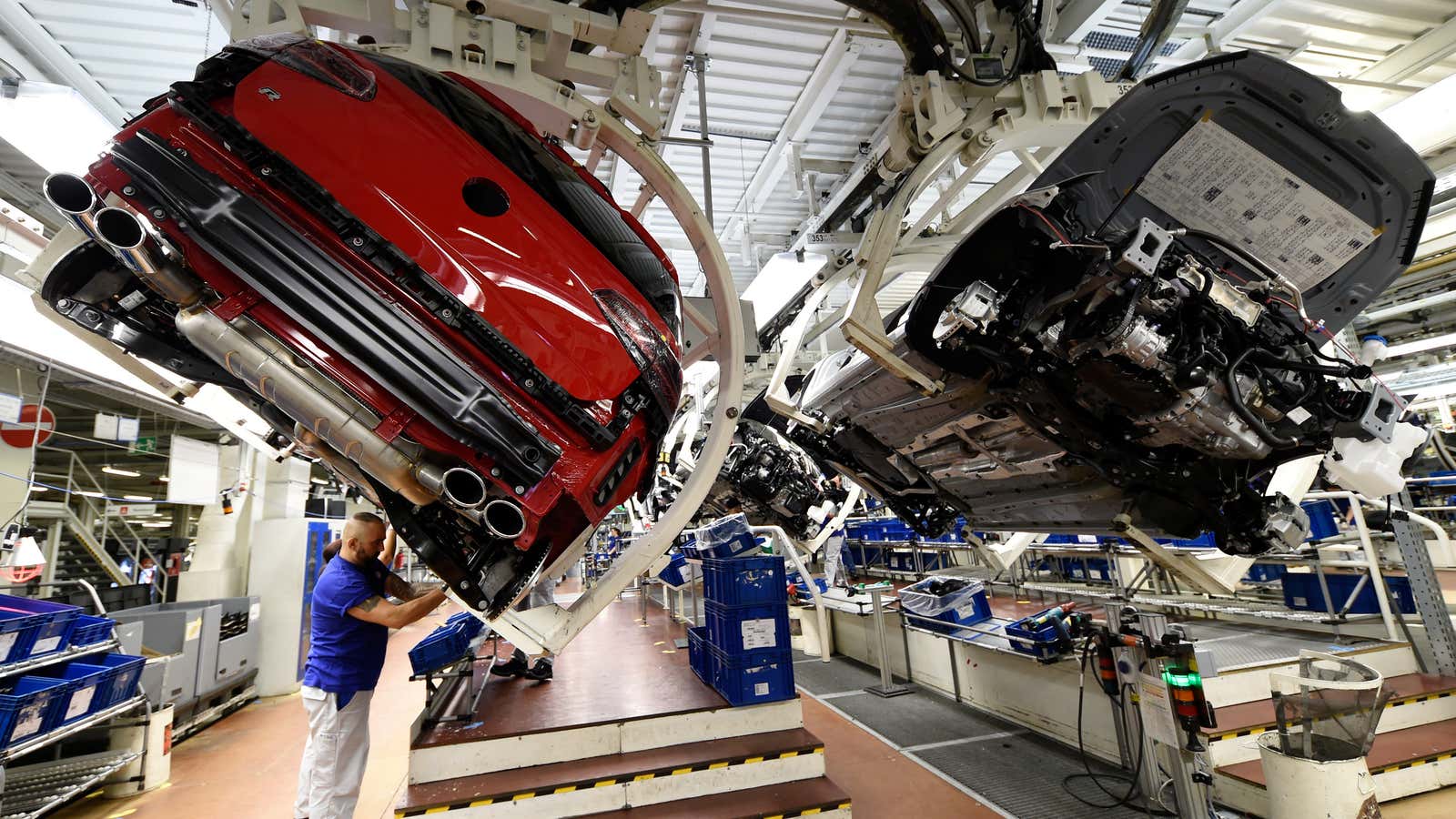Herbert Diess is full of doom and gloom. Addressing an automotive supplier’s conference in Wolfsburg today (Oct. 16), the Volkswagen CEO painted a dark picture of what’s ahead for the German auto industry as it faces big, urgent changes, such as adapting to new EU emissions regulations, diesel bans, and the switch to electrification.
“If you look at the former bastions of the auto industry like Detroit… or Turin, you understand what happens to cities when once-powerful corporations and leading industries falter,” Diess said.
“From today’s point of view, the chances are perhaps 50:50 that the German auto industry will still belong among the global elite in 10 years’ time,” he added.
Diess, whose company was responsible for the Dieselgate emissions-cheating scandal, said the “campaign against individual mobility” as well as the “nearly hysterical nitrogen-oxide discussion about a few problem areas in our cities” was threatening (link in German) the very future of the car.
While polluted Germany cities have been given the green light to introduce diesel bans, only Hamburg has actually implemented the ban on a few stretches of inner-city streets, and Berlin will start its ban next year.
The VW boss also railed against the new European CO2 emissions targets for vehicles, calling them too ambitious and claiming they put too much pressure on auto companies to adapt too fast. To meet these targets, more electric cars would have to be on the roads by 2030 than Germany’s carmakers can manage, he said.
Last week, Diess warned that the EU’s push to cut CO2 emissions from vehicles by 40% by 2030 would result in some 100,000 job losses (link in German) in the VW group over the next 10 years as it is forced to produce more e-cars to hit the fleet emissions rules. Electric cars require fewer workers to build them than internal combustion engine ones.
In the end, EU environment ministers agreed (paywall) to shoot for a 35% CO2 reduction by 2030. More than half of the member states wanted to aim for a 40% reduction, but relented under pressure from a group that included Germany, Hungary, and a few other Eastern European counties.
